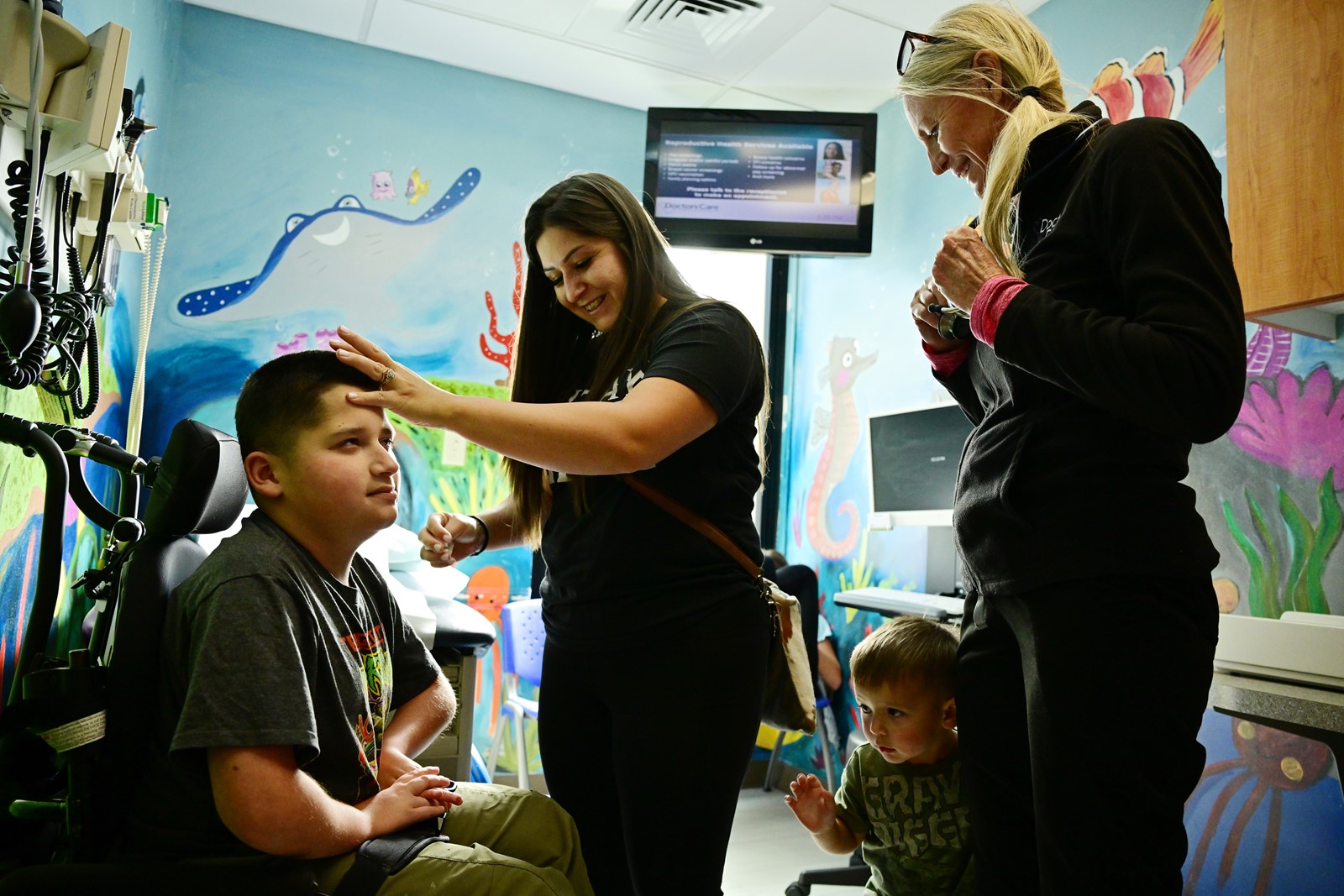

Chelsie Rasmussen was a teenager, pregnant, without a job and looking for a medical office that accepted Medicaid.
She went to the Doctors Care clinic in Littleton and found the help and support she has drawn on since her son was diagnosed with a rare neurological disorder.
“I was just looking for the right care for my newborn. That’s all I thought it would be and it turned into so much more than that,” Rasmussen said.
The support Rasmussen has received through Doctors Care — food assistance, health care, education — forms the core of the program the nonprofit has developed since its start in 1988.
Doctors in Arapahoe, Douglas and Elbert counties were grappling with serving the growing number of uninsured people in need of health care.
Dr. Gary VanderArk, a neurosurgeon and member of the Arapahoe Medical Society, figured that if all the doctors in the area took on just a few of the uninsured patients, they could solve the problem.
The effort grew into Doctors Care, said Bebe Kleinman, the CEO who has been on staff for 25 years.
“To this day, a lot of those founding physicians are still donors and supporters of the organization,” Kleinman said.
VanderArk is on the board of directors.Walking through the clinic, Kleinman described Doctors Care as a “comprehensive, integrated model of health care.”
“We do basic primary care. We also have behavioral health care,” she said. “We connect people to other services based upon needs: housing, food, life skills, more complex care.”
Staffers and volunteers work to line up insurance coverage for people, whether it be Medicaid or Connect for Health Colorado, the state’s marketplace for those who don’t have insurance through an employer or other programs.
People without insurance can pay for care at the clinic on a sliding-fee scale based on income. “But when people need services beyond us, it is helpful when they have insurance coverage. It opens doors,” Kleinman said.
Doctors Care has doctors and other health care workers on staff, but also depends on a core group of volunteers for medical and other services.
“We have about eight volunteer physicians who come in during the week,” Kleinman said.
Many of the volunteers are primary care doctors, usually retired. Some specialists also put in time at the clinic. Kleinman said the Colorado Physicians Insurance Co., or Copic, provides liability coverage for the volunteer doctors, making it possible for them to help at the clinic.
Doctors Care also partners with other organizations to provide outreach through promotoras, a Spanish term for trusted community members who talk to people about health care and get the word out about the clinic. The clinic’s frontline staffers speak Spanish, Kleinman said.
The number of uninsured people declined after the Affordable Care Act took effect in 2014, but has risen again. Kleinman said roughly 22% of the clinic’s patients don’t have insurance, due in part to the change in qualification for Medicaid after the COVID-19 health emergency was declared over.
“Now we’re in an environment where charity becomes even more valuable and important to us so we can keep our doors open,” Kleinman said.
Rasmussen said Doctors Care has been with her and her family “every step of the way” since her son, Nathanyal, now 11, was diagnosed with Angelman syndrome. Her son’s frequent trips to the hospital in the first few months of his life were attributed to his being born prematurely. She and Sue Covington, a physician’s assistant at Doctors Care, pushed for genetic testing.
Nathanyal was diagnosed with the neurological disorder 11 days before his first birthday. The symptoms include seizures, developmental and physical delays, sleep problems and not being able to communicate. Nathanyal is in a wheelchair and is on long-term Medicaid. Rasmussen, a certified nursing assistant, is his primary caregiver.
Rasmussen said Doctors Care has supported her family from the start. “They were with us through every scary time in our lives.”


 PREVIOUS ARTICLE
PREVIOUS ARTICLE
